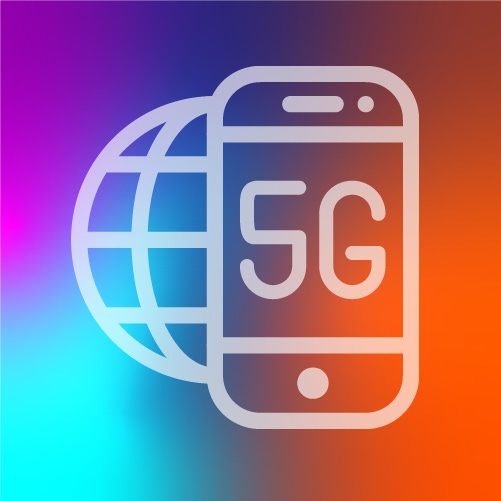
Samsung said this week it was able to achieve 5G download speeds of 8.08 Gbit/s in tests in its lab in Plano, Texas.
And though the company freely acknowledges that such speeds won't necessarily reach everyday 5G users anytime soon – indeed, the company said the transmitters and receivers used in its tests were only a few feet apart – the vendor's efforts nonetheless hint at the future of wireless network technology development.
Figure 1:  Samsung showed off a variety of new products and services at the recent CES show in Las Vegas.
Samsung showed off a variety of new products and services at the recent CES show in Las Vegas.
(Source: Samsung)
In order to achieve its new speed record, Samsung said it used its own virtualized radio access network (RAN) and core products, its Massive MIMO radio and Qualcomm's Snapdragon X65 5G chips.
In terms of spectrum, the company said it conducted the tests using 800MHz of millimeter wave (mmWave) spectrum in the 28GHz band, alongside 100MHz of midband spectrum in the C-band. Samsung used New Radio Dual Connectivity (NR-DC) technology to combine those two bands into one usable connection.
Finally, it used 256 Quadrature Amplitude Modulation (QAM) technology to juice speeds in the connection. The company said its 256 QAM configuration boosted downlink speeds by more than 30% compared with 64 QAM.
"Upload and download speeds are beginning to have real-world impacts on both consumer and business experiences, and the improvement of these speeds will open up new possibilities. Conducting tests that explore 5G speed-enhancing technologies are important for the evolution of the technology and the experiences," the company wrote in response to questions from Light Reading.
Samsung's tests are important for a number of reasons – primarily because of its newly prominent role at Verizon. The vendor inked a $6.6 billion network equipment deal with Verizon in 2020, a move that positions Samsung to capture some of Nokia's market share in the US and to play a leading role in the development of Verizon's 5G network.
In fact, Verizon this month is scheduled to switch on a 5G network in its C-band spectrum. That network will sit next to Verizon's existing mmWave 5G network in 28GHz mmWave spectrum. Thus, it's no surprise those are the spectrum bands Samsung used in its tests.
However, it's worth noting that lab tests and real-world speeds are often wildly different. That's because commercial wireless networks are generally shared among a variety of customers, thus reducing the peak speeds available to any one customer. Further, wireless speeds can be affected by a variety of factors including the distance between users and transmission sites – the farther the distance, the slower the speeds.
Finally, Samsung's new 8Gbit/s speed test isn't necessarily a world record. Nokia, Qualcomm and Elisa in Finland announced 8Gbit/s 5G speeds in 2020. And Keysight Technologies and Qualcomm announced a 10Gbit/s test of 5G using NR-DC technology last year.
Related posts:
— Mike Dano, Editorial Director, 5G & Mobile Strategies, Light Reading | @mikeddano
About the Author(s)
You May Also Like











